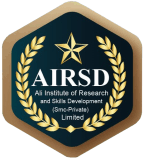Navigating Biomedical Ethical Challenges of Artificial Intelligence in Healthcare
Keywords:
Biomedical ethics, Autonomy underscores, Non-maleficenceAbstract
Biomedical ethics, commonly known as bioethics, constitutes a dynamic and interdisciplinary field that confronts the intricate ethical challenges and moral quandaries inherent at the convergence of medicine, healthcare, and the life sciences. Its foundation lies in the core principles of respect for autonomy, beneficence, non-maleficence, and justice, which collectively establish a robust framework for guiding ethical decision-making in the realm of clinical practice, research endeavors, and the formulation of healthcare policies. The principle of autonomy underscores the importance of respecting individuals' rights to make informed decisions about their own healthcare, while beneficence and non-maleficence emphasize the ethical obligation to promote well-being and prevent harm. Justice, in the context of biomedical ethics, demands the equitable distribution of resources and fair treatment for all individuals. Biomedical ethics serves as an indispensable compass for healthcare professionals, researchers, policymakers, and society at large, providing ethical guidance to navigate the intricate landscape of advancements in medicine and the life sciences.







